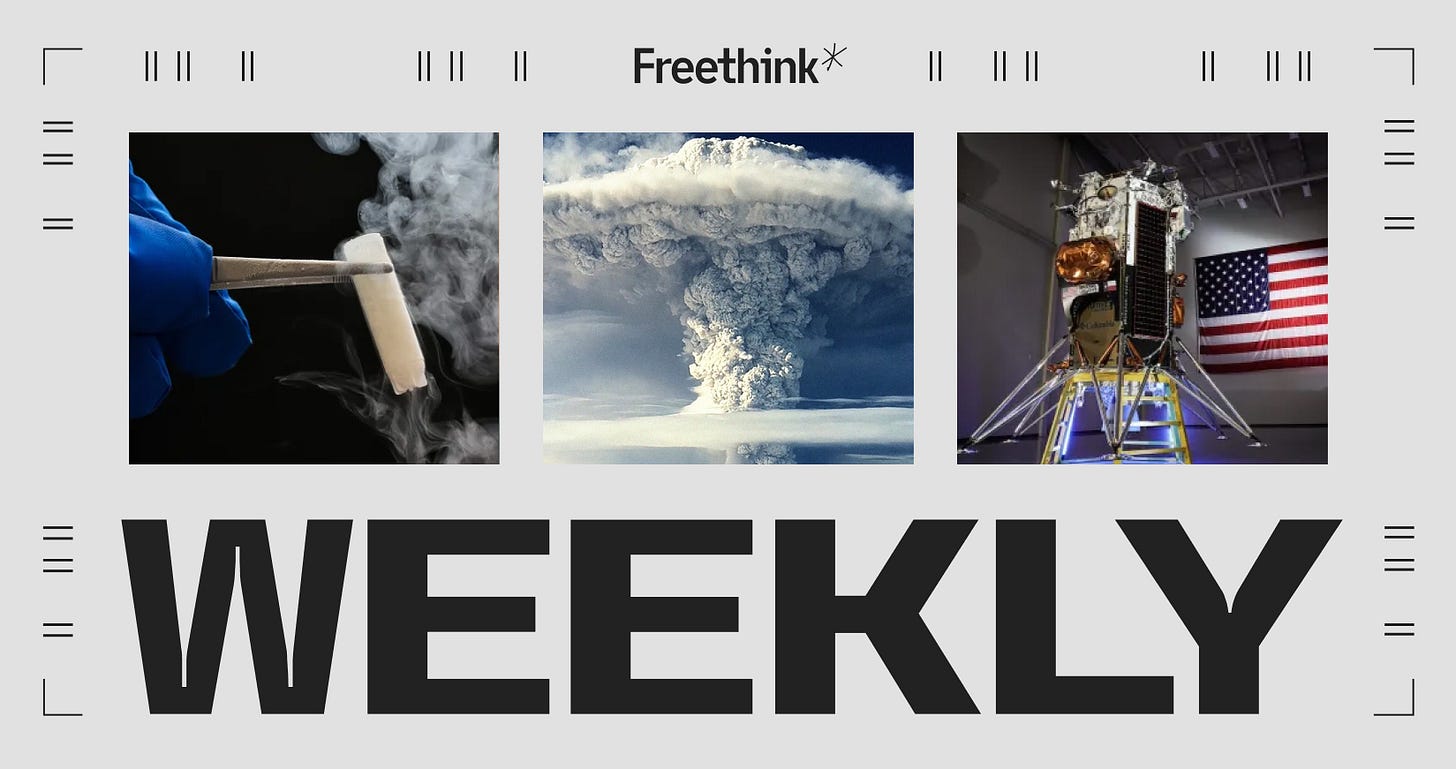🌎 AI resurrects Roman history
How the ‘Vesuvius Challenge’ led to a major breakthrough.
Hey Freethinkers,
“A roll of toilet paper that’s been set on fire.” That’s how Casey Handmer, founder and CEO of Terraform Industries, summed up the sorry state of a set of ancient Roman texts that survived the eruption of Mount Vesuvius in 79 AD. Carbonized and buried under volcanic ash for millennia, the texts were discovered in 1752 but too damaged to decipher — until recently.
In our latest installment of the Freethink Interview, Handmer recounts his part in the high-tech quest to decode the lost scrolls of Herculaneum, as well as the prospect of scroll-hunters someday finding other ancient Roman libraries that have yet to be discovered.
Also on deck: how cryopreservation could end death as we know it, the top 10 space stories of 2024, and how AI is being drafted for a digital cold war.
Onwards,
Stephen
THE FREETHINK INTERVIEW
Inside the high tech quest to decode the lost scrolls of Herculaneum
with physicist and founder of Terraform Industries Casey Handmer // @cjhandmer
The process of digitally “unwrapping” and imaging the Herculaneum scrolls was decidedly high-tech. But Handmer’s approach to decoding the text was not: He stared at scans of damaged papyrus for hours upon hours. Eventually, hints of lambdas and deltas popped out from the noise, a discovery that helped other researchers get on track toward deciphering the mysterious text.
FUTURE EXPLORED
How cryopreservation could end death as we know it
Since the mid-20th century, an estimated 500 people have paid big bucks to have their bodies cryopreserved — frozen and carefully stored after death in the hope they’ll be revived in the future. So far, none have. But a recent breakthrough suggests we might be on the cusp of being able to freeze and preserve whole organs — an ability that could help us end the organ shortage and maybe indefinitely postpone death.
T-MINUS
Counting down the top 10 space stories of 2024
From Ingenuity’s final flight to the first commercial spacewalk in history, 2024 was jam-packed with record-breaking and astronaut-stranding stories. In our latest installment of T-Minus, Kristin Houser counts down the most significant ones.
FREETHINK FEATURES
How AI is being drafted for a digital cold war
As companies race to build increasingly powerful AI, we seem to be drifting toward a world in which these models are built to serve under national flags — as “pawns (or perhaps chess engines) in support of rival national goals.” That’s what Philip L. — creator of the popular YouTube channel AI Explained — argues in this op-ed, which asks whether it’s too late to change course: “Do we not owe it to future generations, and ourselves, to at least attempt a CERN for AI?”
WORTH SHARING
The unbelievable interconnectedness of nature
Biologist Sean B. Carroll explains the laws of nature and The Serengeti Rules.
Trees need salmon—but why? Ecologists have discovered that certain species are vital for maintaining balanced ecosystems, and losing them can lead to collapse. Biologist Sean B. Carroll explores this idea in The Serengeti Rules, and demonstrates how reintroducing key species can help restore and manage these delicate environments.
Stephen Johnson is the managing editor at Big Think and a writer at Freethink.











